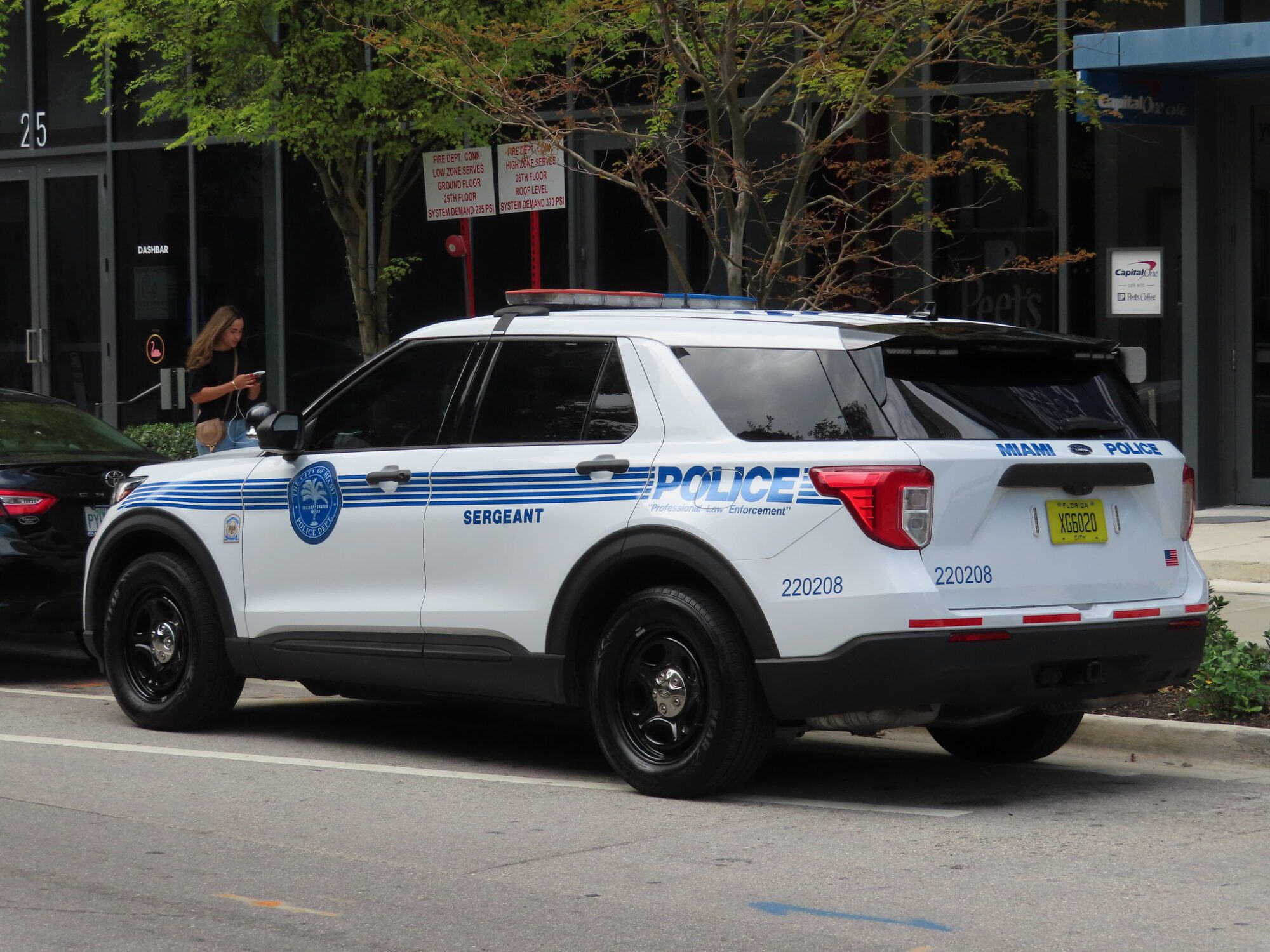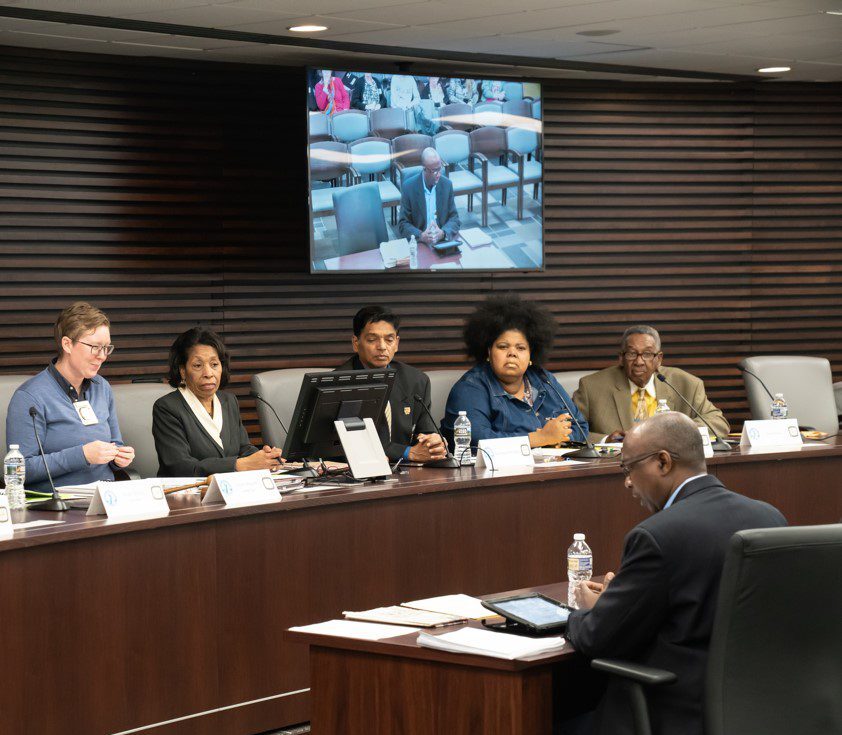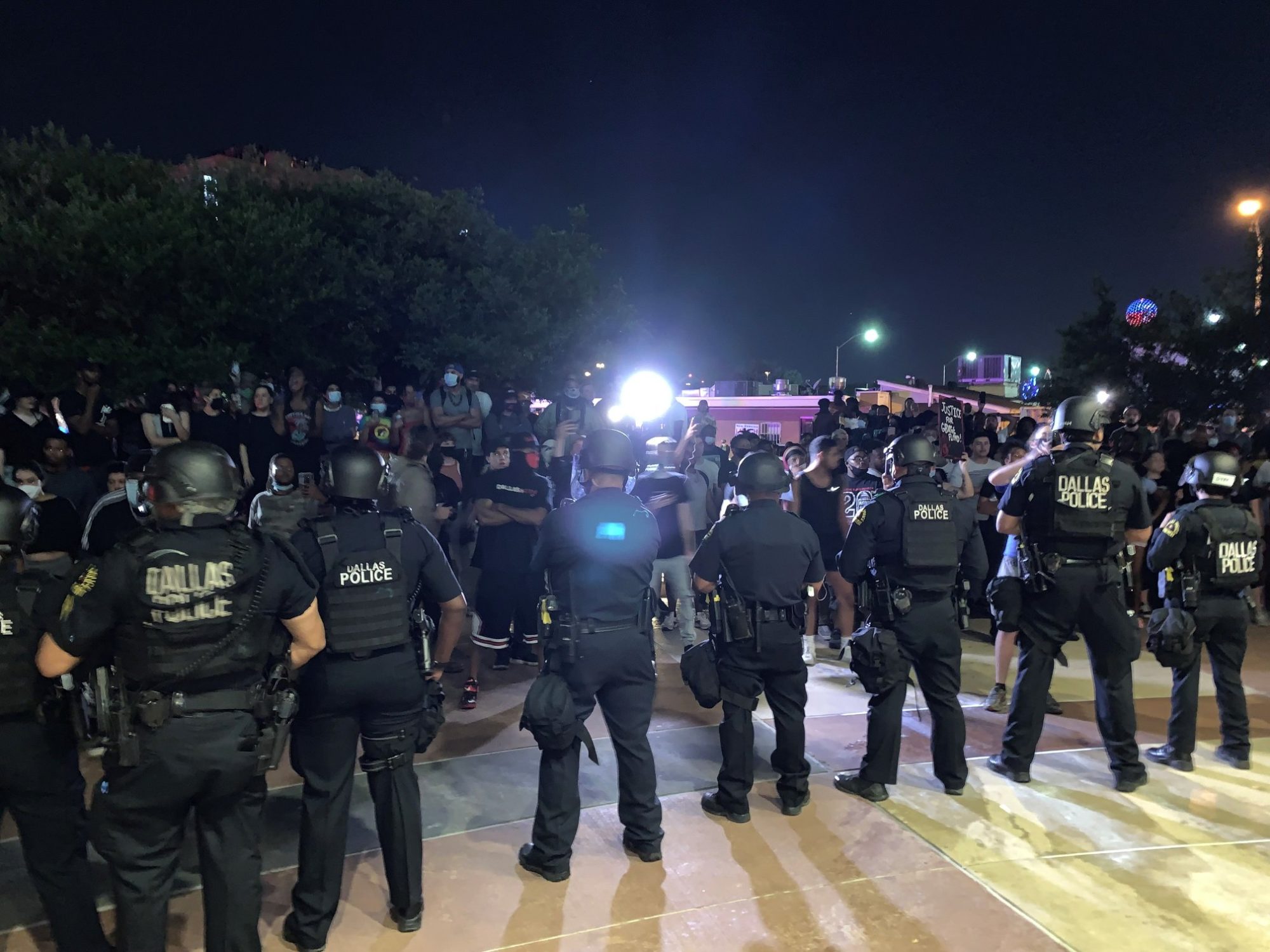Police Oversight in Florida Is Already Weak. The State Is About to Gut It Further.
A bill headed to the governor’s desk would bar civilian oversight boards from investigating instances of police misconduct, further restricting their limited powers of accountability.
Pascal Sabino | March 22, 2024


Editor’s note (April 12): Governor Ron DeSantis signed House Bill 601 into law on Friday, April 12.
The Florida legislature approved a bill this month that would further limit local civilian police oversight boards by barring them from investigating allegations of police misconduct. Police unions support the bill as a measure to protect the rights of officers, though critics say it represents yet another blow to police accountability efforts already shackled by existing state laws giving cops extraordinary legal protections.
Some of these civilian oversight agencies have been around for decades. The Civilian Investigative Panel in Miami, for instance, was created in 2002 amid concerns about police conduct in a number of high-profile shootings, as well as in the aftermath of the Elián González standoff when the city’s Cuban American community decried police treatment of protesters in the wake of the crisis. Miami’s panel was formed to investigate police misconduct incidents alongside the local police agency’s internal affairs departments.
But many of the 21 agencies across the state that would be affected by the ban emerged in cities like Pensacola and Key West following the 2020 George Floyd protests amid widespread calls for additional police accountability. After the national uprisings, many local Florida governments threw their cities a bone in the form of hamstrung civilian oversight panels that could review cases but had practically no legal authority.
Critics say this current bill would undermine what were already baby-steps toward greater police accountability and walk back cities’ efforts to improve public trust in law enforcement.
“They’re making it seem un-American to question policing, which should be a huge red flag to everybody,” said Taylor Biro, a former member of Tallahassee’s police oversight board. “It is another way of showing how far to the right Florida wants to be seen. It’s a lot of political theater, and there’s not a lot of thought behind what the community review boards’ goals are.”
The bill forbids civilian panels from investigating complaints and misconduct cases involving specific officers, a key starting point for oversight agencies to uncover underlying policing issues. It would only let these boards review and advise on broad department policies and problems that emerge as patterns in police activity.
It is now headed for the desk of Governor Ron DeSantis, who has yet to say whether he will sign it into law but has repeatedly positioned himself as a close ally to law enforcement groups. It aims to showcase Florida as “the most law enforcement-friendly state,” said state Representative Wyman Duggan, a Republican sponsor, at a January committee hearing. However opponents say it is part of a larger backlash against criminal justice reforms, which has become a cornerstone of the governor’s policies. DeSantis has been a leading voice rallying against reforms nationwide, pushing for harsher punishments for drug crimes, a lower threshold for death penalty sentences, and recruitment programs to draw out-of-state officers to Florida.
The bill’s Republican sponsors and police union supporters did not respond to requests for comment from Bolts. But in legislative hearings, proponents said the ban is not intended to eliminate civilian oversight boards entirely or stop them from reviewing department-wide policies such as use-of-force procedures.
“Those discussions about chokeholds, about knees on necks—that’s the stuff that could be valuable with a civilian review board, those discussions about policies and procedures,” said state Senator Blaise Ingoglia, the bill’s sponsor in the upper chamber, during a January committee meeting. “But stay away from the actual specific incidents that happen with the law enforcement officer.”
Oversight boards can still improve transparency and strengthen internal processes through these broader reviews of police department policies, says Ursula Price, executive director of Miami-Dade County’s 13-member Independent Civilian Panel. Her agency has made several recommendations to law enforcement in Miami-Dade County that have been adopted, including for more training in de-escalation, and a review of department processes for receiving and investigating complaints.
But even without explicitly banning oversight on department-wide policies, the new bill would still obstruct the panels from digging into misconduct incidents to get to the internal practice at the root of the problem, Price said. “We use individual complaints as data. It’s information to help us understand the system,” she said. “We cannot analyze that system or understand it without looking at some of the details in the accountability process.”
For Miami-Dade County’s Independent Civilian Panel, it was essential to look into specific complaints to determine whether the investigation process managed by the police’s internal affairs office was sufficient. By looking into individual cases, the panel uncovered that the investigation wasn’t always rigorous enough to match the gravity of the complaint, Price added.
“There were some anecdotal instances where complaints were getting shuffled off without anybody looking at it. We wanted to make sure that was the exception, not the rule. Luckily, the police department was open to making those changes,” Price said.
This review of the police department’s complaint process was only possible because of a civilian investigation into an incident where an officer was accused of making an illegal search, Price said. That investigation led the Independent Civilian Panel to review a large sample of complaint reports to get to the bottom of how the police department was managing similar accusations.
The city of Miami has its own local oversight agency, the Civilian Investigative Panel, which has also historically reviewed both individual complaints and broader department procedures. Rodney Jacobs, the panel’s executive director, says many of their recommendations for strengthening internal policy have stemmed from misconduct investigations that bring light to the underlying policing practices that allow for misconduct to occur.
“In the course of an investigation, you often find systemic issues,” Jacobs said. “By doing it from an investigative lens, it raises red flags to have a proactive approach. By having active investigations, it allows you to stop misconduct before it becomes a metastasized issue.”
The city’s panel reviews up to 400 complaints each year, and many of these complaints result in policy changes within the Miami Police Department: Jacobs said the panel’s investigations have prompted the police department to revise its strip search policy, develop mediation programs between law enforcement and local communities, and clarify body cam procedures to improve transparency. By accepting these recommendations, Jacobs said local police have increased public trust by giving communities recourse for addressing individual cases as well as the underlying patterns of police conduct.
“The best way to build trust is having a great sense of transparency,” Jacobs said. “It helps bolster police work because police need the community to do their work effectively, especially when it comes to solving cases.”
Police unions and their allies in the statehouse say the new ban on civilian investigations is at its core an issue of protecting the due process rights of officers. Duggan, the bill’s sponsor, argued at a committee hearing that the oversight panels are a risk to officers since they don’t have uniform qualifications for the members overseeing investigations and lack due process standards for how they conduct their investigations.
The exposure to scrutiny from civilian panels can “hinder recruitment and retention of officers in jurisdictions that have these entities in place,” Duggan said.
But opponents of the bill say a ban on investigations wouldn’t give officers any additional protection because these oversight boards pose no risk to an officer’s due process rights in the first place; the state’s Law Enforcement Officer Bill of Rights already forbids them from having any authority to take disciplinary action following a misconduct investigation.
“They’re unable to conduct hearings or report their findings and recommendations publicly,” said NR Hines, a policy strategist for the American Civil Liberties Union of Florida. “Even if they did report findings, they are recommendations that are not binding in any way and have no force over the officers that are mentioned.”
Florida’s officers bill of rights, a law guaranteeing officers under investigation a list of special protections, was first passed in 1974 and has been expanded over time. The law allows officers accused of misconduct to select at least one member of the internal panel charged with investigating their case. Interrogations of police are also highly regulated, and officers are allowed to review all evidence and testimony against them before being interviewed by fellow police or prosecutors.
Accountability advocates worry those protections give officers advantages that prevent an impartial investigation. They say these built-in advantages underscore why independent reviews of police misconduct cases are essential for improving public trust, given the skepticism toward internal affairs investigations led in part by colleagues hand-picked by the aggrieved officer.
“The processes that currently exist don’t always achieve accountability,” Hines said. “The intention is to be an unbiased board that can represent all residents and review police activity.”
Even before this year’s legislation undermining local oversight panels, Florida’s supreme court ruled in 2017 that the protections granted to officers are so expansive that they prevent external agencies like oversight panels from having subpoena power to compel officers to appear at hearings or answer questions related to misconduct investigations.
Local rules in some cities place further restrictions on citizen panels. In Tallahassee, the oversight board cannot begin reviewing a misconduct case until it is already closed by law enforcement’s internal affairs office.
“When I was on the board, we didn’t know the officers’ names,” Biro, the former Tallahassee board member, said. “We would determine what policies a situation touched, and make recommendations on how to shift those policies, never touching those officers.”
Tallahassee’s city commissioners removed Biro from the oversight panel in 2022 after police unions complained about a sticker on Biro’s coffee mug that was critical of police. Two other members resigned after Biro’s removal to protest that the panel was hampered from taking real action to heighten police accountability. For most of 2023, the board was unable to meet due to lacking enough members for a quorum.
“It was really eye-opening,” Biro said. “The grassroots folks who pushed for a board to happen got a very watered-down version of what a lot of communities imagined would be helpful. Now we see that watered-down version being taken away.”
Florida is the latest of several states to preemptively weaken civilian police oversight. Utah previously stripped police oversight groups from having the authority to revise department policy in 2019. New Jersey’s supreme court ruled in 2020 that existing state law limited oversight boards from investigating misconduct cases until police completed their own process, though a bill introduced this year would give civilian panels such authority as well as subpoena power.
More recently, Tennessee passed legislation in 2023 to eliminate community-led oversight panels and prevent advisory groups from investigating police misconduct cases.
In Florida, this push for a ban on outside misconduct investigations underscores how limited civilian oversight panels already are in their capacity to reach their goals of transparency and accountability. Further weakening civilian oversight serves more as a political posture rather than a policy that would truly address issues facing local law enforcement, Hines said.
‘It’s really based on a perception that accountability for law enforcement is ‘woke,’” Hines said. “It seems like they’re trying to find a problem where there isn’t one. Civilian review boards pose no threat to law-abiding officers.”
Jacobs, from the oversight panel for the city of Miami, worries that attacks on the already-limited powers of oversight agencies in the state signal a larger aversion to police accountability. “If police unions are able to sway elected officials, we may see attacks on internal affairs divisions,” Jacobs said. “This is probably just the first bite of the apple of police accountability.”
Sign up and stay up-to-date
Support us
Bolts is a non-profit newsroom that relies on donations, and it takes resources to produce this work. If you appreciate our value, become a monthly donor or make a contribution.




